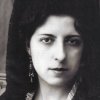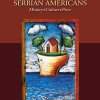Потицао је из уважене породице државника и дипломате Јеврема Грујића. Завршио је школовање у Паризу где је 1898. и докторирао. У дипломатску службу примљен је 1894. Налазио се на одговорним местима у посланствима Краљевине Србије у Цариграду, Атини, Петрограду и Лондону.
У време пријема аустроугарског ултиматума јула 1914, у одсуству председника владе Николе Пашића, написао је одговор на ултиматум. Током евакуације 1915. организовао је превођење избеглица са албанске обале на Крф и у Француску. Унапређен је 1916. за посланика у Берну, где се истакао живом дипломатском и хуманитарном активношћу. Са Међународним комитетом Црвеног крста у Женеви и са супругом Мејбл Грујић уложио је велике напоре да се помогне становништву у окупираној Србији. Средином 1918. наименован је за посланика у Вашингтону где је службовао од јануара 1919. до септембра 1922. Повратком у земљу активно је учествовао у раду разних хуманитарних друштава. После смрти краља Александра I Карађорђевића постао је маршал двора, али је већ средином 1935. постављен за посланика у Великој Британији и истовремено акредитован у Холандији.
Извор: Википедија






